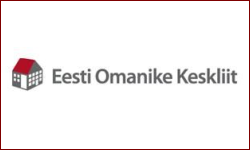 Swedbank Economic Outlook presents the latest economic forecasts for Sweden, the Nordic and Baltic countries and the major global economies. In this update, current issues that have a bearing on economic developments are analysed.
Swedbank Economic Outlook presents the latest economic forecasts for Sweden, the Nordic and Baltic countries and the major global economies. In this update, current issues that have a bearing on economic developments are analysed.
Global – Strong growth momentum
The outlook for global growth remains good. The euro area is on a stronger footing, and the US economy continues to grow at a moderate pace. Emerging markets are stabilising, contributing to a global cyclical upswing. Political uncertainties have increased somewhat in the past months and still pose a significant risk to the economic outlook. In the long run, populist policies could undermine political and economic institutions that are crucial for long-run growth prospects. In the short run, however, we expect strong growth to counteract the negative effects of a politically weak environment.
Sweden – Housing market in the spotlight
The Swedish economy is benefitting from solid global growth. Exports and industrial production have accelerated. Employment, investment, and consumer spending are growing at a good pace, supported by low interest rates and an expansionary fiscal policy. In recent months, however, we have seen a clear slowdown in price increases in the housing market, which is creating concern that prices may drop. Will prices stabilise, fall, or continue to rise? What will happen to the Swedish economy if the housing market slows?
Baltic countries – Strong tailwinds
Economic growth has exceeded expectations in all three Baltic countries this year. Stronger external demand is lifting exports and investments.
Tight labour markets are pushing up wages. Higher incomes, in turn, are supporting consumption. GDP is expected to grow above its potential both this and the next year. In 2019, growth is expected to recede as the cyclical upswing fades. Inflation has accelerated due to higher commodities’ prices and excise taxes and growing labour costs.
Interest and exchange rate forecasts
Even if the pace is slow, the direction of central banks is clear; a gradual removal of policy stimulus has begun. We foresee that this normalisation will continue, something that to a large extent will affect market interest rates, as well as exchange rates. Interest rates are rising, and we see a progressively stronger krona, as well as euro, during the forecast period.
















